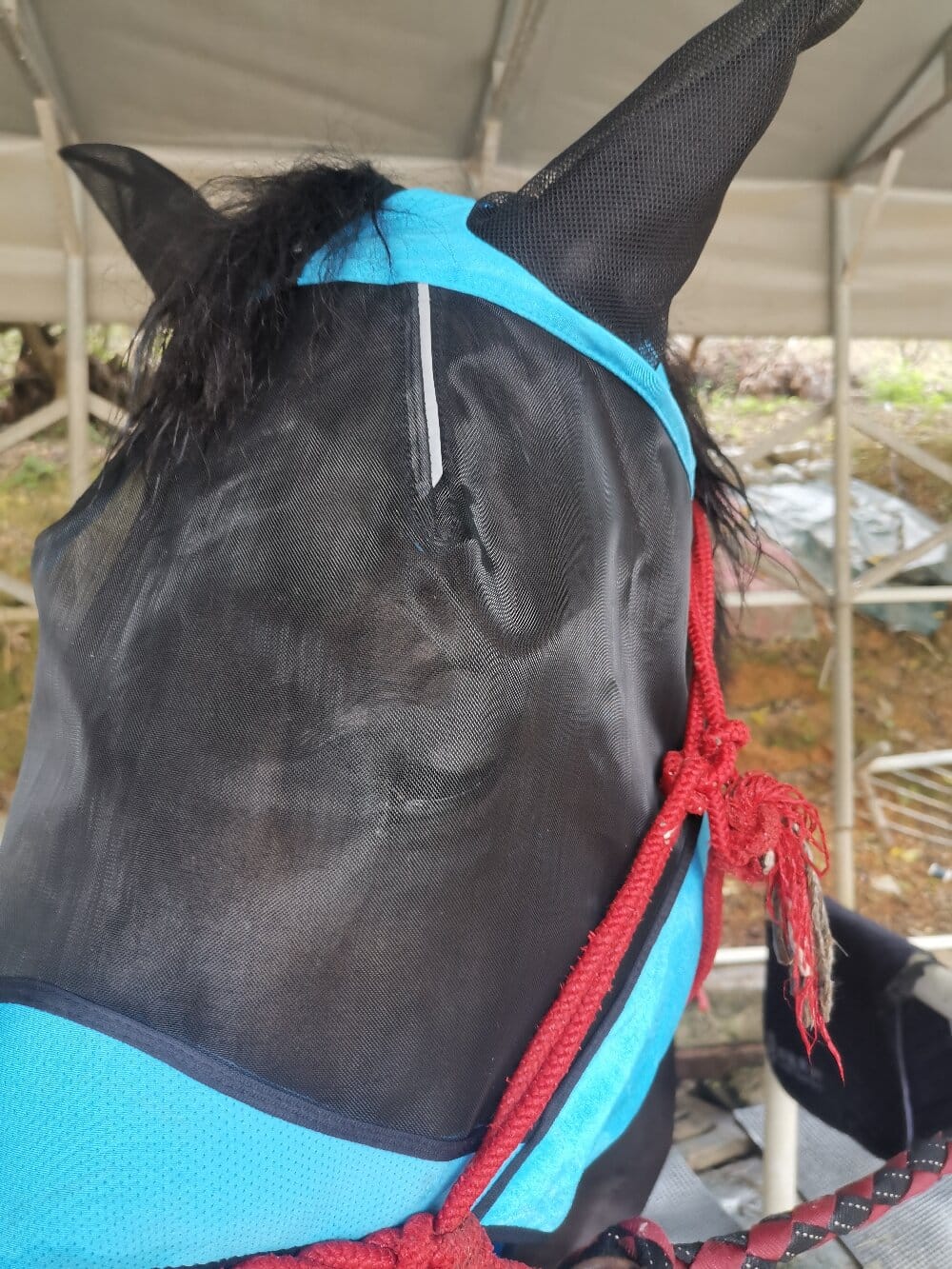If you own a horse, you know how pesky flies and insects can be during warmer months. A horse fly mask is more than just a simple accessory—it’s a scientifically backed solution to protect your equine companion from irritation, infections, and stress. Data shows that horses wearing fly masks experience fewer eye-related issues and exhibit calmer behavior, making this gear essential for their well-being. Let’s dive into the facts and benefits behind this must-have equestrian item.
The Science Behind Horse Fly Masks
Research indicates that flies and UV rays can cause significant discomfort for horses, leading to conditions like conjunctivitis, corneal ulcers, and even long-term vision problems. A fly mask for horses acts as a barrier, reducing exposure to these risks. Studies from veterinary journals reveal that horses wearing protective face coverings have a 60% lower incidence of eye infections compared to those without. The data speaks for itself: prevention is better than treatment.
Key Benefits of Using a Fly Mask
Beyond shielding your horse’s eyes, a high-quality fly mask offers multiple advantages backed by real-world observations:
- UV Protection: Many masks include UV-blocking materials, reducing the risk of sunburn and related skin conditions.
- Reduced Stress: Horses bothered by flies often exhibit anxious behaviors like head-tossing or rubbing—fly masks minimize these reactions.
- Improved Comfort: Breathable fabrics ensure your horse stays cool while staying protected.
- Versatility: Some designs extend coverage to ears and muzzle, offering full-face protection.
Choosing the Right Fly Mask: Data-Backed Tips
Not all fly masks are created equal. Here’s how to pick the best one for your horse based on performance metrics and user feedback:
- Material Matters: Look for durable, lightweight mesh that allows airflow without compromising protection.
- Fit and Adjustability: Data from equine studies shows that poorly fitted masks can cause rubs or slip off, so opt for adjustable straps.
- Visibility: Ensure the mask doesn’t obstruct your horse’s vision—test it in different lighting conditions.
- Ease of Cleaning: Masks accumulate dirt and sweat; choose machine-washable options for hygiene.
Common Misconceptions About Fly Masks
Despite their benefits, some horse owners hesitate to use fly masks due to myths. Let’s debunk them with facts:
- “My horse doesn’t need one.” Even if flies aren’t visibly bothersome, UV rays and dust can still harm their eyes.
- “They’re uncomfortable.” Modern designs prioritize comfort, and most horses adapt within minutes.
- “They’re only for summer.” Flies can be active in spring and fall, and UV protection is year-round.
Real-World Impact: Case Studies and Testimonials
Data from equestrian communities highlights the transformative effect of fly masks. For example, a 2022 survey of 500 horse owners found that 85% reported fewer vet visits for eye issues after consistent mask use. One competitive rider noted, “Since using a fly mask, my horse’s performance improved—less distraction means better focus during training.”
Conclusion: A Small Investment for Big Returns
A horse fly mask isn’t just another piece of tack—it’s a data-supported tool for enhancing your horse’s health and happiness. By reducing fly irritation, blocking harmful UV rays, and preventing infections, this simple accessory delivers measurable benefits. Whether you’re a casual rider or a competitive equestrian, the evidence is clear: protecting your horse’s eyes is a smart, science-backed decision.

